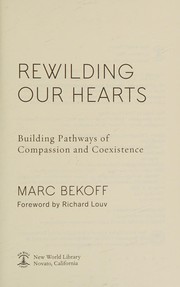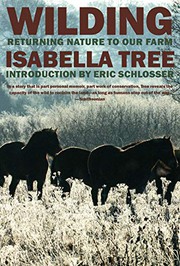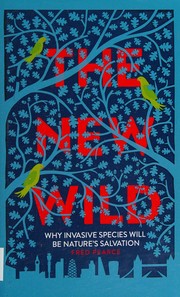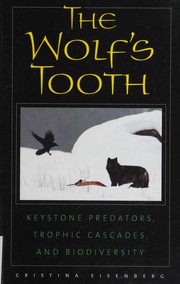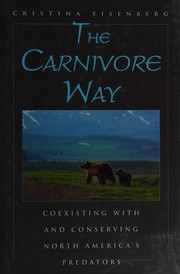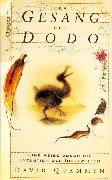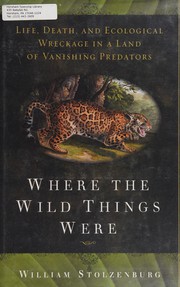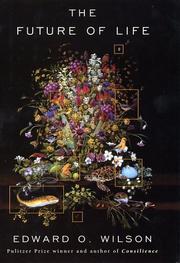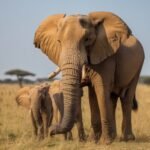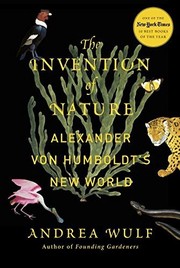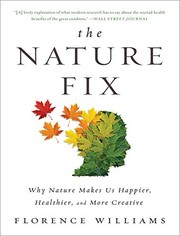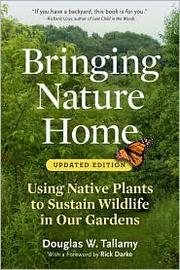Are you passionate about rewilding and eager to delve deeper into this fascinating topic? Look no further! We’ve curated a list of the 20 best books about rewilding that will enrich your understanding and inspire you to take action. Whether you’re seeking a compelling narrative, scientific insights, or practical guides, these books on rewilding cover a wide range of perspectives and experiences. From thought-provoking essays to captivating memoirs, each book offers a unique exploration of the rewilding movement. Get ready to embark on a literary journey that will ignite your passion for conservation and the restoration of our natural world.
Contents
- 1 20 Best Rewilding Books
- 2 Rewilding Our Hearts: Building Pathways of Compassion and Coexistence
- 3 Wilding: The Return of Nature to a British Farm
- 4 The New Wild: Why Invasive Species Will Be Nature’s Salvation
- 5 The Once and Future World: Nature As It Was, As It Is, As It Could Be
- 6 Feral: Rewilding the Land, Sea, and Human Life
- 7 The Wolf’s Tooth: Keystone Predators, Trophic Cascades, and Biodiversity
- 8 The Carnivore Way: Coexisting with and Conserving North America’s Predators
- 9 The Song of the Dodo: Island Biogeography in an Age of Extinctions
- 10 Where the Wild Things Were: Life, Death, and Ecological Wreckage in a Land of Vanishing Predators
- 11 The Future of Life
- 12 The Serengeti Rules: The Quest to Discover How Life Works and Why It Matters
- 13 The Invention of Nature: Alexander von Humboldt’s New World
- 14 The Hidden Life of Trees: What They Feel, How They Communicate—Discoveries from a Secret World
- 15 The Sixth Extinction: An Unnatural History
- 16 The Nature Fix: Why Nature Makes Us Happier, Healthier, and More Creative
- 17 The Great Animal Orchestra: Finding the Origins of Music in the World’s Wild Places
- 18 Rewilding: The Radical New Science of Ecological Recovery
- 19 Bringing Nature Home: How You Can Sustain Wildlife with Native Plants
- 20 Landmarks
- 21 A Sand County Almanac
- 22 Final Thoughts on Best Rewilding Books
- 23
20 Best Rewilding Books
Rewilding Our Hearts: Building Pathways of Compassion and Coexistence
by Marc Bekoff
Rewilding Our Hearts: Building Pathways of Compassion and Coexistence by Marc Bekoff is a captivating book about rewilding that delves into the importance of reconnecting with nature and embracing our innate compassion for all living beings. Bekoff, a renowned wildlife biologist and ethologist, presents a compelling argument for the necessity of rewilding our hearts and minds in order to foster a more harmonious relationship with the natural world.
Through insightful anecdotes and scientific evidence, Bekoff highlights the interconnectedness of all species and the profound impact of human behavior on the environment. He advocates for a shift in perspective, urging readers to cultivate empathy and respect for wildlife, and to actively participate in conservation efforts.
This rewilding book serves as a poignant reminder of our responsibility to protect and coexist with the diverse array of creatures that share our planet. It inspires readers to embrace a more compassionate and sustainable way of living, ultimately building pathways towards a future where humans and wildlife can thrive together.
Wilding: The Return of Nature to a British Farm
by Isabella Tree
Wilding: The Return of Nature to a British Farm by Isabella Tree is a captivating book about rewilding, the process of restoring ecosystems to their natural state. The author and her husband decided to transform their struggling farm in Sussex, England into a haven for wildlife by allowing nature to take over. As they let go of traditional farming practices and introduced free-roaming animals, the land flourished, and a diverse range of plant and animal species began to thrive once more.
Tree’s narrative is a powerful testament to the resilience of nature and the potential for rewilding to heal damaged landscapes. The book provides a thought-provoking exploration of the delicate balance between human intervention and the intrinsic regeneration of the natural world. Through vivid storytelling and insightful research, Wilding offers a hopeful vision for the future of conservation and the coexistence of humans and wildlife.
Wilding is a must-read for anyone interested in environmental stewardship, the rewilding movement, and the profound impact of returning land to its wild state.
The New Wild: Why Invasive Species Will Be Nature’s Salvation
by Fred Pearce
The New Wild: Why Invasive Species Will Be Nature’s Salvation by Fred Pearce is a thought-provoking book on rewilding that challenges our traditional views of invasive species. Pearce explores the idea that these often-maligned plants and animals might actually be nature’s way of healing and restoring damaged ecosystems. He argues that rather than being seen as a threat, invasive species could be the key to rewilding and revitalizing our natural world.
Pearce’s book about rewilding takes readers on a journey through different ecosystems around the world, showcasing how invasive species have played a role in rejuvenating and diversifying landscapes. Through detailed research and captivating storytelling, he presents a compelling case for embracing the potential benefits of these so-called invaders.
The New Wild challenges readers to reconsider their preconceptions about invasive species and opens up new possibilities for rewilding our planet. Pearce’s engaging and informative writing will leave readers with a fresh perspective on the role of invasive species in nature’s delicate balance.
The Once and Future World: Nature As It Was, As It Is, As It Could Be
by J.B. MacKinnon
The Once and Future World by J.B. MacKinnon is a captivating exploration of the changing nature of our planet. This thought-provoking book delves into the concept of rewilding, challenging readers to consider the impact of human activity on the natural world. MacKinnon takes us on a journey through time, painting a vivid picture of the Earth as it once was, contrasting it with the reality of the present, and offering a hopeful vision of what it could be in the future.
Through compelling storytelling and insightful research, MacKinnon sheds light on the interconnectedness of all living things and the potential for restoration and regeneration. His passionate and persuasive arguments make a compelling case for rewilding, urging us to rethink our relationship with nature and consider the possibility of a more harmonious and sustainable coexistence with the planet.
Whether you are an environmental enthusiast or simply curious about the future of our world, this book about rewilding is a must-read. The Once and Future World will leave you inspired and hopeful for the potential of a wilder, more vibrant Earth.
Feral: Rewilding the Land, Sea, and Human Life
by George Monbiot
Feral: Rewilding the Land, Sea, and Human Life by George Monbiot is a captivating exploration of the concept of rewilding and its potential impact on the environment and human society. Monbiot, a prominent environmentalist, takes readers on a thought-provoking journey through the idea of restoring natural processes and reintroducing long-absent species to their native habitats.
This rewilding book delves into the benefits of allowing nature to reclaim spaces that have been heavily impacted by human activity, highlighting the potential for ecological rejuvenation and the restoration of biodiversity. Monbiot also discusses the profound connections between rewilding and human well-being, proposing that the rewilding of landscapes can have transformative effects on our own lives.
With evocative prose and compelling arguments, Feral challenges readers to reconsider their relationship with the natural world and contemplate the possibilities of rewilding for the future. This book about rewilding is a must-read for anyone interested in conservation, ecology, and the potential for revitalizing our planet.
The Wolf’s Tooth: Keystone Predators, Trophic Cascades, and Biodiversity
by Cristina Eisenberg
The Wolf’s Tooth: Keystone Predators, Trojsonic Cascades, and Biodiversity by Cristina Eisenberg is a captivating book about rewilding and the crucial role of keystone predators in maintaining healthy ecosystems. Eisenberg delves into the intricate web of relationships between predators, prey, and the environment, highlighting the profound impact of trophic cascades on biodiversity.
Through engaging storytelling and scientific evidence, Eisenberg presents the case for the reintroduction of keystone predators, such as wolves, and the positive effects they have on restoring balance to ecosystems. She emphasizes the importance of these apex predators in shaping landscapes and the interconnectedness of all living organisms.
This rewilding book is a thought-provoking exploration of the intricate balance of nature and the profound impact that keystone predators have on the health and diversity of ecosystems. Eisenberg’s work is a must-read for anyone interested in understanding the complex dynamics of natural systems and the potential for rewilding to restore ecological harmony.
The Carnivore Way: Coexisting with and Conserving North America’s Predators
by Cristina Eisenberg
The Carnivore Way: Coexisting with and Conserving North America’s Predators by Cristina Eisenberg is a captivating book on rewilding that delves into the intricate relationships between humans and carnivores. Eisenberg explores the challenges and opportunities of coexisting with predators such as wolves, bears, and big cats, offering a thought-provoking look at how we can conserve these essential species while also ensuring the safety and well-being of both wildlife and human communities.
Through vivid storytelling and scientific insights, Eisenberg paints a compelling picture of rewilding efforts and the potential benefits of restoring healthy predator populations to their natural habitats. With a deep understanding of ecology and conservation, the author presents a hopeful vision for a future where humans and carnivores can thrive together, emphasizing the importance of preserving biodiversity and the interconnectedness of all life on Earth. The Carnivore Way is a must-read for anyone passionate about wildlife conservation and the rewilding movement, offering an inspiring and informative perspective on our relationship with North America’s top predators.
The Song of the Dodo: Island Biogeography in an Age of Extinctions
by David Quammen
The Song of the Dodo: Island Biogeography in an Age of Extinctions by David Quammen is a captivating exploration of the science of biogeography and its implications for conservation. This book delves into the fascinating world of island ecosystems and the unique species that inhabit them, shedding light on the interconnectedness of life on Earth. Through vivid storytelling and in-depth research, Quammen presents the concept of rewilding – the restoration of natural habitats and reintroduction of species – as a crucial strategy for combating the current wave of extinctions.
As a book about rewilding, The Song of the Dodo offers a thought-provoking examination of the challenges facing biodiversity in the modern age. Quammen’s engaging narrative takes readers on a journey across continents and through time, unveiling the complex dynamics of island biogeography and the enduring relevance of natural history. This rewilding book is a must-read for anyone interested in the intersection of ecology, conservation, and the future of our planet.
Where the Wild Things Were: Life, Death, and Ecological Wreckage in a Land of Vanishing Predators
by William Stolzenburg
Where the Wild Things Were: Life, Death, and Ecological Wreckage in a Land of Vanishing Predators by William Stolzenburg is a captivating book about rewilding and the consequences of the disappearance of predators from our ecosystems. Stolzenburg delves into the intricate web of life and the impact of the absence of top predators on the environment. Through engaging storytelling and scientific research, the author explores the cascading effects of predator loss, from the overpopulation of prey species to the disruption of natural balance.
Readers will be taken on a thought-provoking journey to understand the crucial role that predators play in maintaining healthy ecosystems. Stolzenburg presents a compelling case for rewilding, advocating for the reintroduction of predators to restore ecological harmony. This rewilding book challenges our perceptions of predators and prompts us to reconsider their importance in preserving biodiversity and the natural world. Where the Wild Things Were is a must-read for anyone passionate about conservation, rewilding, and the interconnectedness of all living beings.
The Future of Life
by Edward O. Wilson
The Future of Life by Edward O. Wilson is a thought-provoking exploration of the delicate balance between humanity and the natural world. In this captivating book, Wilson discusses the urgent need to preserve the Earth’s biodiversity and the potential consequences of failing to do so. He delves into the impact of human activities on the environment and offers insightful solutions to mitigate the damage.
Throughout the book, Wilson advocates for the rewilding of ecosystems and emphasizes the importance of conservation efforts to protect endangered species and their habitats. His compelling arguments and vivid descriptions make a compelling case for the rewilding movement, urging readers to consider the long-term implications of their actions on the planet.
With a compelling blend of scientific expertise and environmental passion, The Future of Life is a must-read for anyone interested in the future of our planet. Wilson’s eloquent prose and powerful message make this book a captivating and essential read for anyone concerned about the future of life on Earth.
The Serengeti Rules: The Quest to Discover How Life Works and Why It Matters
by Sean B. Carroll
The Serengeti Rules by Sean B. Carroll is a captivating book about rewilding that takes readers on a fascinating journey through the world of biology and ecology. Carroll explores the groundbreaking work of a group of scientists who uncovered the fundamental rules that govern life on Earth. From the Serengeti to the depths of the ocean, the book delves into the interconnectedness of ecosystems and the delicate balance that exists within them.
Through engaging storytelling and compelling research, Carroll illustrates the profound impact that these rules have on the environment and the importance of understanding them in the context of rewilding. Readers will gain a deeper appreciation for the intricate web of life and the potential for restoration and conservation efforts to make a meaningful difference.
With its blend of science, exploration, and conservation, The Serengeti Rules is a thought-provoking and inspiring read for anyone interested in rewilding, biodiversity, and the future of our planet.
The Invention of Nature: Alexander von Humboldt’s New World
by Andrea Wulf
The Invention of Nature: Alexander von Humboldt’s New World by Andrea Wulf is a captivating biography that brings to life the extraordinary adventures and groundbreaking discoveries of the visionary scientist and explorer, Alexander von Humboldt. Wulf paints a vivid picture of Humboldt’s travels across the uncharted territories of South America, where he meticulously documented the interconnectedness of nature and the impact of human activity on the environment. This rewilding book is a fascinating account of Humboldt’s pioneering contributions to our understanding of ecology, climate change, and the concept of nature as a complex and interconnected web of life. Wulf’s narrative skillfully weaves together historical accounts, personal letters, and scientific observations to offer a compelling portrait of a man ahead of his time. The Invention of Nature is a must-read for anyone interested in the history of science, environmentalism, and the enduring relevance of Humboldt’s ideas in today’s world.
The Hidden Life of Trees: What They Feel, How They Communicate—Discoveries from a Secret World
by Peter Wohlleben
The Hidden Life of Trees by Peter Wohlleben is a captivating exploration of the intricate and astonishing world of trees. Wohlleben, a renowned forester, delves into the fascinating ways in which trees communicate, nurture each other, and even feel pain. This eye-opening book on rewilding reveals the complex social networks that exist within forests, where trees support and protect each other in a stunning display of interconnectedness.
Through Wohlleben’s engaging storytelling, readers will gain a deeper appreciation for the intelligence and resilience of trees, as well as the vital role they play in sustaining life on our planet. The book about rewilding also offers thought-provoking insights into how humans can better understand and coexist with the natural world.
Whether you’re a nature enthusiast, environmentalist, or simply curious about the hidden wonders of the forest, The Hidden Life of Trees is a must-read rewilding book that will forever change the way you perceive the beauty and complexity of the natural world.
The Sixth Extinction: An Unnatural History
by Elizabeth Kolbert
The Sixth Extinction: An Unnatural History by Elizabeth Kolbert is a captivating exploration of the current mass extinction of species and its implications for the planet. In this thought-provoking book, Kolbert presents a comprehensive overview of the Earth’s previous five mass extinctions, highlighting the drastic impact of human activities on the environment and the alarming rate at which species are disappearing.
Through compelling storytelling and meticulous research, Kolbert delves into the interconnectedness of ecosystems and the devastating consequences of human intervention, from climate change to habitat destruction. She also examines the efforts of scientists and conservationists to mitigate the crisis, offering a glimmer of hope amidst the sobering narrative.
This book on rewilding serves as a wake-up call, urging readers to consider the long-term consequences of their actions and to take responsibility for the conservation of biodiversity. The Sixth Extinction is a must-read for anyone interested in environmental science, biology, and the urgent need for rewilding our planet.
The Nature Fix: Why Nature Makes Us Happier, Healthier, and More Creative
by Florence Williams
The Nature Fix by Florence Williams is a fascinating exploration of the power of nature to improve our well-being. In this insightful book, Williams delves into the science behind why spending time in nature makes us happier, healthier, and more creative. She takes readers on a journey around the world, visiting diverse natural landscapes and investigating the restorative effects they have on the human mind and body.
Through immersive storytelling and compelling research, Williams makes a compelling case for the importance of incorporating nature into our daily lives. From Japanese forest bathing to wilderness therapy in Utah, she uncovers the profound benefits of rewilding ourselves in nature. The Nature Fix is a captivating blend of environmental journalism, psychology, and personal narrative that will leave readers inspired to seek out the healing powers of the natural world.
If you’re looking for a thought-provoking book about rewilding and the positive impact of nature on our overall well-being, The Nature Fix is a must-read.
The Great Animal Orchestra: Finding the Origins of Music in the World’s Wild Places
by Bernie Krause
The Great Animal Orchestra: Finding the Origins of Music in the World’s Wild Places by Bernie Krause is a captivating exploration of the natural world and the symphony of sounds created by the diverse range of animals that inhabit it. Krause, an acclaimed musician and naturalist, takes readers on a journey to some of the most remote and untouched corners of the earth, where he records the enchanting sounds of the wild.
This book is not just a celebration of the beauty of nature’s music, but also a profound reflection on the impact of human activity on the world’s ecosystems. Through his work, Krause sheds light on the urgent need to protect and preserve these natural soundscapes, making a compelling case for conservation and rewilding.
With vivid descriptions and powerful storytelling, The Great Animal Orchestra is a must-read for anyone who appreciates the wonders of the natural world and is interested in the growing movement towards rewilding and ecological restoration.
Rewilding: The Radical New Science of Ecological Recovery
by Paul Jepson
Rewilding: The Radical New Science of Ecological Recovery by Paul Jepson is a groundbreaking book on rewilding that explores the concept of restoring and revitalizing natural ecosystems. Jepson delves into the innovative and transformative strategies being used to reintroduce native species, rebuild habitats, and regenerate landscapes. The book about rewilding presents a compelling argument for the importance of rewilding in addressing the environmental challenges facing our planet.
Through engaging storytelling and insightful analysis, Jepson takes readers on a journey to understand the potential of rewilding to reverse ecological damage and promote biodiversity. This rewilding book offers a comprehensive look at the science, philosophy, and practice of rewilding, making it a must-read for anyone interested in conservation, ecology, and the future of our natural world.
Bringing Nature Home: How You Can Sustain Wildlife with Native Plants
by Douglas W. Tallamy
Bringing Nature Home: How You Can Sustain Wildlife with Native Plants by Douglas W. Tallamy is a groundbreaking book about rewilding that explores the crucial role of native plants in supporting local wildlife. Tallamy makes a compelling case for the importance of incorporating native plants into our landscapes to restore biodiversity and create thriving ecosystems.
Through engaging storytelling and compelling scientific evidence, Tallamy demonstrates how our traditional landscaping practices have disrupted natural ecosystems and led to the decline of many native species. He offers practical solutions for individuals and communities to make a positive impact by embracing native plants in their gardens and green spaces.
This rewilding book is a must-read for anyone interested in conservation, gardening, or environmental stewardship. It provides actionable insights and empowers readers to play a vital role in preserving and restoring wildlife habitats right in their own backyards. Bringing Nature Home is an inspiring call to action and a valuable resource for anyone passionate about the intersection of nature and human impact.
Landmarks
by Robert Macfarlane
Landmarks by Robert Macfarlane is a captivating exploration of the natural world and the language used to describe it. Macfarlane delves into the rich lexicon of regional dialects and languages to uncover the unique and often overlooked terms that have been used to describe landscapes, weather, and natural phenomena. Through his lyrical prose, he brings to life the intricate and diverse ways in which people have interacted with and understood the natural world throughout history.
This beautifully crafted book is a compelling reminder of the wealth of knowledge and wisdom embedded in local languages and the landscapes they describe. It is a celebration of the interconnectedness of language, culture, and the environment, and an invitation to rediscover the beauty and significance of the natural world.
Landmarks is a must-read for anyone with a passion for nature, language, and the profound connection between the two. It is a book on rewilding that will inspire readers to rekindle their relationship with the natural world and cherish the richness of our linguistic heritage.
A Sand County Almanac
by Aldo Leopold
A Sand County Almanac is a classic book about rewilding and conservation written by Aldo Leopold, a renowned ecologist and environmentalist. The book is a collection of essays that offers a profound reflection on the natural world and our place in it. Leopold takes the reader on a journey through the seasons, exploring the beauty and complexity of the natural world while also addressing the impact of human activity on the environment.
Through his eloquent prose and deep understanding of ecology, Leopold advocates for a more harmonious relationship between humans and the land, emphasizing the importance of conservation and rewilding in order to preserve the delicate balance of nature. A Sand County Almanac is a thought-provoking and poetic work that continues to inspire readers to appreciate and protect the natural world. Whether you are an avid nature enthusiast or simply curious about rewilding, this book is a must-read for anyone interested in the intersection of ecology and conservation.
Final Thoughts on Best Rewilding Books
In conclusion, these 20 best books about Rewilding offer a diverse and insightful exploration of this important environmental concept. Whether you’re new to the idea or a seasoned rewilding enthusiast, there’s a book on this list that’s sure to captivate and inform you. From practical guides to inspiring narratives, these books provide valuable knowledge and inspiration for anyone interested in the rewilding movement.
Which book about Rewilding is best?
The best book on Rewilding can vary with personal preference, but three widely recommended titles are:
- Rewilding Our Hearts: Building Pathways of Compassion and Coexistence by Marc Bekoff,
- Wilding: The Return of Nature to a British Farm by Isabella Tree,
- The New Wild: Why Invasive Species Will Be Nature’s Salvation by Fred Pearce.
Each offers valuable insights and could be a great starting point.
What are the best books to learn about Rewilding?
For those looking to learn about Rewilding, there is a wealth of literature that can provide a comprehensive understanding of the subject. Some of the most highly recommended books include:
- Rewilding Our Hearts: Building Pathways of Compassion and Coexistence by Marc Bekoff,
- Wilding: The Return of Nature to a British Farm by Isabella Tree,
- The New Wild: Why Invasive Species Will Be Nature’s Salvation by Fred Pearce,
- The Once and Future World: Nature As It Was, As It Is, As It Could Be by J.B. MacKinnon,
- Feral: Rewilding the Land, Sea, and Human Life by George Monbiot,
- The Wolf’s Tooth: Keystone Predators, Trophic Cascades, and Biodiversity by Cristina Eisenberg,
- The Carnivore Way: Coexisting with and Conserving North America’s Predators by Cristina Eisenberg,
- The Song of the Dodo: Island Biogeography in an Age of Extinctions by David Quammen,
- Where the Wild Things Were: Life, Death, and Ecological Wreckage in a Land of Vanishing Predators by William Stolzenburg,
- The Future of Life by Edward O. Wilson
These books offer a range of perspectives on Rewilding, covering various aspects and approaches to the subject.
What are the best books about Rewilding?
The best books about Rewilding are:
- Rewilding Our Hearts: Building Pathways of Compassion and Coexistence by Marc Bekoff,
- Wilding: The Return of Nature to a British Farm by Isabella Tree,
- The Serengeti Rules: The Quest to Discover How Life Works and Why It Matters by Sean B. Carroll,
- The Invention of Nature: Alexander von Humboldt’s New World by Andrea Wulf,
- The Song of the Dodo: Island Biogeography in an Age of Extinctions by David Quammen,
- The Wolf’s Tooth: Keystone Predators, Trophic Cascades, and Biodiversity by Cristina Eisenberg.
Each offers unique insights into the subject. While these books about Rewilding are highly regarded, it’s important to note that any list of ‘best’ books is subjective and reflects a range of opinions.
What are the best Rewilding books of all time?
Choosing the best Rewilding books of all time can vary depending on who you ask, but five titles that are often celebrated include
- Rewilding Our Hearts: Building Pathways of Compassion and Coexistence by Marc Bekoff,
- Wilding: The Return of Nature to a British Farm by Isabella Tree,
- Feral: Rewilding the Land, Sea, and Human Life by George Monbiot,
- The Song of the Dodo: Island Biogeography in an Age of Extinctions by David Quammen,
- and The Serengeti Rules: The Quest to Discover How Life Works and Why It Matters by Sean B. Carroll.
Each of these books has made a significant impact in the field of Rewilding and continues to be influential today.

